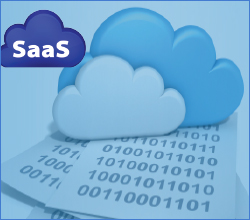
SR Letter 11-7 - Supervisory Guidance on Model Risk Management
 Mario Mosse
Mario Mosse
 90 Min
90 Min
Product Id: 703995
This training program will detail why SR Letter 11-7 has become the gold standard for model risk management, with its principle being adopted not only by banks but also virtually all U.S. financial institutions.

Weed, Cocaine and Heroin: What it Means to Your Bank or Credit Union?
 Doug Keipper
Doug Keipper
 60 Min
60 Min
Product Id: 705440
This webinar will focus on the today’s marketplace for weed, cocaine and opioids including heroin. It will cover topics such as FinCEN’s expectations regarding Marijuana-related businesses, drug enforcement agency fact sheets, FBI and DEA documentary on opioid abuse, summary review of transactions and much more.

Motivating Staff to Avoid Compliance Breaches
 Jack Bensimon
Jack Bensimon
 60 Min
60 Min
Product Id: 706228
This webinar will discuss ways to develop rewards and deterrence strategy to ensure staff are effectively motivated to comply with the firm’s policies & procedures. It’s often a matter of clarifying for staff what is expected of them to tailor their job, and how best they can satisfy compliance requirements without compromising their own performance. The goal is to turn this into a crusade without staff believing it to be so.

FinCEN Compliance for MSBs - Tricks to Maintaining Compliance
 Jack Bensimon
Jack Bensimon
 60 Min
60 Min
Product Id: 706223
This webinar will discuss how to most effectively and efficiently comply with the complex maze of FinCEN rules and regulations for MSBs (Money Service Business). Compliance does not have to be onerous and time-consuming. Discover tools and techniques that can simplify your processes while minimizing regulatory scrutiny.

Complying with Garnishment Orders
 Miles Hutchinson
Miles Hutchinson
 90 Min
90 Min
Product Id: 705558
In this webinar, you will receive step by step guidance on how to evaluate and process the various types of garnishment orders including child support, spousal support, alimony, federal and state taxes, bankruptcy, student loans, and creditor garnishments.

FDCPA: Basics of the Fair Debt Collection Practices Act
 Daniel Clark
Daniel Clark
 60 Min
60 Min
Product Id: 706417
FDCPA has long been important for financial institutions. With an added focus on consumer rights by activists and now by regulators like the CFPB, it may be time to reacquaint ourselves with this regulation and what we can and cannot do when collecting debts owed us. While changes to the law remain in flux given the current administration’s desire to reduce regulations, the basics are still viable and relevant.

The Top Twenty Standards of Internal Control for a Corporation
 Chris Doxey
Chris Doxey
 60 Min
60 Min
Product Id: 706042
Attend this webinar to learn the best practices of internal control and top twenty internal controls standard roles and responsibilities to detect and prevent fraud. Also attendees will learn top three critical corporate controls and why they are the foundation of any internal controls program.

How to Think Like a Crook - Money Laundering Prevention
 Doug Keipper
Doug Keipper
 60 Min
60 Min
Product Id: 702770
This anti-money laundering training will describe the reasons and methods of money laundering in financial institutions. This will help attendees to protect themselves from regulatory risk by establishing an effective anti-money laundering system within their financial institution.

Effective Vendor Risk Management
 Mario Mosse
Mario Mosse
 90 Min
90 Min
Product Id: 705193
Vendor risk management is an important component of a financial institution’s operational risk management program. This training program will examine how a sound vendor risk management program, including careful planning, due diligence and selection, and close oversight and monitoring during the life of the contract, is necessary to reduce the risks posed by the outsourcing of critical functions.

Implementing P-Card Policies, Procedures, and Internal Controls Best Practices
 Chris Doxey
Chris Doxey
 60 Min
60 Min
Product Id: 703920
This training program will discuss how purchasing cards (P Cards) provide a means for streamlining the procure-to-pay process, allowing organizations to procure goods and services in a timely manner, reduce transaction costs, track expenses, take advantage of supplier discounts, reduce or redirect staff in the purchasing and/or accounts payable departments, reduce or eliminate petty cash, and more. It will also illustrate how a P-Card program can create additional fraud risk and requires robust policies, procedures, and internal controls.

Red flags indicating ID threats for New & Existing Accounts and Problems with the "26 Red Flags"
 Jim George
Jim George
 60 Min
60 Min
Product Id: 705579
This webinar will discuss the identity threats and related issues in the banking industry. The presentation will review what is going on with regard to customer ID and the data breach. Banks have been increasingly depending on Credit Agencies’ data to support their customer identity needs.

Designing and Using KPI's and Performance Dashboard
 Miles Hutchinson
Miles Hutchinson
 90 Min
90 Min
Product Id: 703405
This webinar will explain how to design, implement and monitor critical Key Performance Indicators (KPIs) using powerful performance dashboards.

NEW Rules for Large Originators/TPS and TPSP - Discover the Impacts and Compliance Requirements
 Donna K Olheiser
Donna K Olheiser
 60 Min
60 Min
Product Id: 705274
Details on the recently approved amendments to the existing ACH security framework and how they affect the TPSP, TPA and Originators. The implementation will take place over a 2-phased process, starting with the largest Originators and TPSP/TPS and ending with large Originators and TPSP/TPS based on volume of ACH transactions. Challenges that may be encountered will be discussed as Originators and TPSP/TPS prepare for this addition to the existing ACH security framework. Included will be the ODFI’s responsibility to ensure the Originator and TPSP/TPS follow this new Rule.

SOX: Internal Controls for Accounts Payable
 Mike Morley
Mike Morley
 60 Min
60 Min
Product Id: 700323
This Internal Controls for Accounts Payable webinar will provide you with the tools you need to establish and maintain strong internal controls in the A/P department that meet Sarbanes-Oxley standards.

Understanding How to Use Pivot Tables and Charts for Dashboard Construction - Putting It All Together!
 Joe Weil
Joe Weil
 100 Min
100 Min
Product Id: 705054
This easy-to-follow webinar training will illustrate the use of Pivot Tables, Pivot Charts and Pivot Table Slicers to analyze sales data by state, sales person and sales location. Pivot Tables are very versatile and allow the Excel professional to rapidly change rows, columns, and more to slice and dice raw data for detailed analysis and presentation. These same Pivot Table tools can be used for accounts receivable, inventories, personnel and much more.

Employee Fraud Detection and Prevention
 Peter Goldmann
Peter Goldmann
 90 Min
90 Min
Product Id: 704040
This fraud training program will focus on understanding the fraud problem and what propels employees to commit fraud. The course will also offer essential fraud detection tools and techniques and highlight best practices for developing and implementing anti-fraud controls.

Critical Anti-Fraud Audits under Procurement and Accounts Payable
 Marna Steuart
Marna Steuart
 60 Min
60 Min
Product Id: 703533
This webinar will explain how to perform anti-fraud audits in the purchasing/accounts payable cycle. It will discuss the use of Audit Control Language (ACL) and how this tool and other tools like it (IDEA) are helpful in the analysis of accounts payable and purchasing data.

Compliance Requirements for Unauthorized Returns with recently Approved Changes to the Rules
 Donna K Olheiser
Donna K Olheiser
 60 Min
60 Min
Product Id: 705282
In this 60-minute session, the trainer will cover all the recently approved changes and details for returning an unauthorized transaction, including when to use a R10 or an R11 Return Reason Code. Examples used throughout the session will outline these changes, describe their effect on you as a participant in the ACH network, whether you are an RDFI or an ODFI.

Analyzing IFRS Financial Statements - What’s the Difference?
 Mike Morley
Mike Morley
 60 Min
60 Min
Product Id: 704558
This training program will answer questions related to IFRS financial statements and compare them to GAAP based statements using numbers from examples that come from every-day life. The course will also analyze the four key principles of IFRS and the cash flow statement, and discuss using financial statement notes to decode the numbers.

How to Value Your Private Company? - Methods, Measures, And Management
 Jack Bensimon
Jack Bensimon
 60 Min
60 Min
Product Id: 706268
This webinar will discuss ways to value your private company using easy to implement methods and tools that don’t require advanced training or resources. We will be covering areas and measures that will be key to raising capital among shareholders and other financiers.


























